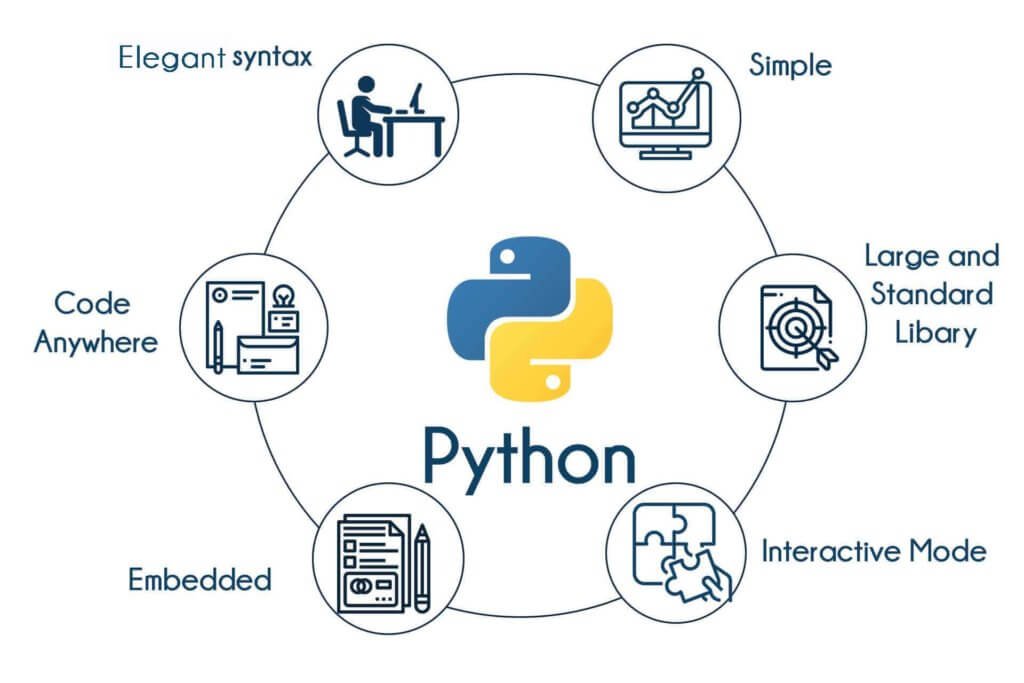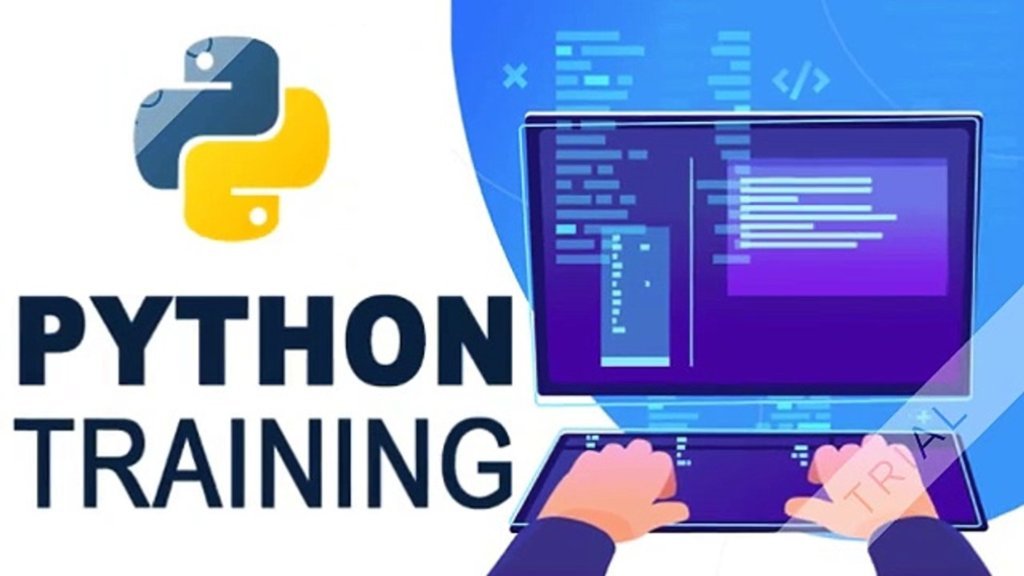PYTHON Internship Course In Mohali, Chandigarh
Infosif Solutions based in Mohali offers – ( Top Rated IT company ) is one of best IT Firm based in Chandigarh Region that’s offer IT education with 4 years of experience in the field of IT internship. It has trained over 10,000+ professionals in India. The institute provides a huge variety of career, professional, short-term and certification courses, designed by our dedicated professional’s academicians after careful market study and research.
Learn Real coding ” Python” from scratch

Completing our packages can be a stepping-stone to learning any other programming language, and to explore technologies using Python as a foundation (e.g., Django). Our introductory packages are distinguished by their affordability, friendliness, and openness to the student. They all start from the absolute basics, guiding you step by step to complex problems, making you a responsible software creator able to take different challenges in many position in the IT industry.
Who should take our packages?
- Students with little or no prior knowledge of programming
- Students of secondary schools
- University students
- Students of vocational schools or simply anyone interested in learning programming.
- The only preliminary requirement is the ability to use a personal computer and very basic knowledge in mathematics.
Why should you take our packages?
To start programming in Python! Taking the introductory package gives you the opportunity to dive into computer programming with no specific prerequisites.
The main goal of the package is to guide you from a state of complete programming illiteracy to a level of programming knowledge which allows you to design, write, debug, and run programs encoded in the Python language, and to understand the basic concepts of software development technology.
Are you ready to start changing the world?
PYTHON Lesson – PART 1
A professional study package (the first in a 2-package series)
Sign up for Python Lessons – Part 1, dive into computer programming, and learn Python from scratch! Expand your IT skills and start your career as software developer, software engineer, and application developer.
This package is the first in a 2-package series that will prepare you for the PCEP – Certified Entry-Level Python Programmer and PCAP: Certified Associate in Python Programming certification exams.
-
Learn 100% coding, 100% professional guidance;
-
No pre-requisites, start learning Python from scratch;
-
Easy to hit deadlines
PYTHON Lesson – PART 2
The second part of professional study package (the second in a 2-package series)
Sign up for Python Lessons – Part 2, the second package in a 2-package series, which picks up where Python Lessons – Part 1 leaves off.
Learn the skills related to the more advanced aspects of Python syntax, semantics, general coding techniques, and object-oriented programming (OOP).
Prepare for PCAP: Certified Associate in Python Programming certification and careers connected with Software Development, Security, Networking, and the Internet of Things (IoT).
-
flexible deadlines;
-
prepare for PCAP – Certified Associate in Python Programming certification;
-
get a 50% discount for the PCAP exam!

Python Lessons – Part 1 (Basics)
This package is the first in a 2-package series that will prepare you for the PCEP – Certified Entry-Level Python Programmer and PCAP: Certified Associate in Python Programming certification exams.
The main goal of the package is to guide you from a state of complete programming illiteracy to a level of programming knowledge which allows you to design, write, debug, and run programs encoded in the Python language, and to understand the basic concepts of software development technology.
The package will prepare you for jobs and careers connected with widely understood software development, which includes not only creating the code itself as a junior developer, but also computer systems design and software testing.
You will learn
- Practice skills in resolving typical implementation challenges
- Use the most important elements of Python Standard Library
- Install your runtime environment
- Write your own Python programs
Certification
PCEP – Certified Entry-Level Python Programmer certification is a professional credential that measures your ability to accomplish coding tasks related to the Lessons of programming in the Python language. A test candidate should demonstrate sufficient knowledge of the universal concepts of computer programming, the syntax and semantics of the Python language as well as the skills in resolving typical implementation challenges with the help of the Python Standard Library.
PCEP – Certified Entry-Level Python Programmer certification shows that the individual is familiar with universal computer programming concepts like data types, containers, functions, conditions, loops, as well as Python programming language syntax, semantics, and the runtime environment.
Becoming PCEP certified ensures that the individual is acquainted with the most Lesson means provided by Python 3 to enable her/him to start their own studies at an intermediate level and to continue their professional development.
PCEP – Certified Entry-Level Python Programmer certification is an interim step to the PCAP – Certified Associate in Python Programming certification and the starting point to launch a career in software development, Python programming, and related technologies. Becoming PCEP certified will help you stand out from other candidates and get your foot in the door.
Infosif Learning provides 100% practical internship in live projects, 5+ Certification with job placements assistant to IT Companies like Google, Flipkart, MakeMyTrip, Snapdeal etc.
Advanced Python internship package Modules
(ALL package MODULES IN ONE + 20 MODULES + CERTIFICATIONS)
PYTHON package MODULE
- Introduction to Python
- Memory management and Garbage collections
- Data Types and Operation
- Statements and Syntax
- File Operations, Function
- Modules and Packages
ADVANCE PYTHON package MODULE
- Intro to Socket Programming
- Connecting Client Server
- Method Overriding
- Special Class Method
- Creating Sockets
- Data Hiding
PYTHON Internship Duration
- Regular Classes ( Morning, Day time & Evening)
- Weekend internship : 45 Days
- Fast Track internship: 4-5 Weeks
PYTHON Internship Trainer Profile
- Has worked on 40+ real time internship project
- Has more than 5 Years of Experience
- Has strong Theoretical & Practical Knowledge
- Already trained 1250+ Students so far.
Our PYTHON Internship Strategy
We not only cater our expert services to Students, but also provide internship to Entrepreneurs, Corporate and Professionals regardless of their field of work and experience
- Quality Class Room internship
- Industry Specific Curriculum
- Doubt Classes To Enhance Skills
- 100% Job Placement Assurance
PYTHON Internship Overview
Python is a general-purpose interpreted, interactive, object-oriented, and high-level programming language. Python has been one of the premier, flexible, and powerful open-source language that is easy to learn, easy to use, and has powerful libraries for data manipulation and analysis
- There are no hard pre-requisites. Basic understanding of Computer Programming terminologies is sufficient. Also, basic concepts related to Programming and Database is beeficial but not mandatory.
- Objectives of the package
- To understand the concepts and constructs of Python
- To create own Python programs, know the machine learning algorithms in Python and work on a real-time project running on Python
- Who should do the package ?
- Big Data Professionals
- IT Developers
- Those who are showing interest to build their career in Python
- Python internship package Duration
- 35 Days, Daily 1 Hours
- Python package Content
- Core Python
Introduction to Languages
- What is Language?
- Types of languages
- Introduction to Translators
- Compiler
- Interpreter
- What is Scripting Language?
- Types of Script
- Programming Languages v/s Scripting Languages
- Difference between Scripting and Programming languages
- What is programming paradigm?
- Procedural programming paradigm
- Object Oriented Programming paradigm
Introduction to Python
- What is Python?
- WHY PYTHON?
- History
- Features – Dynamic, Interpreted, Object oriented, Embeddable, Extensible, Large standard libraries, Free and Open source
- Why Python is General Language?
- Limitations of Python
- What is PSF?
- Python implementations
- Python applications
- Python versions
- PYTHON IN REALTIME INDUSTRY
- Difference between Python 2.x and 3.x
- Difference between Python 3.7 and 3.8
- Software Development Architectures
- Python Software’s
- Python Distributions
- Download &Python Installation Process in Windows, Unix, Linux and Mac
- Online Python IDLE
- Python Real-time IDEs like Spyder, Jupyter Note Book, PyCharm, Rodeo, Visual Studio Code, ATOM, PyDevetc
- Python Language Fundamentals
- Python Implementation Alternatives/Flavors
- Keywords
- Identifiers
- Constants / Literals
- Data types
- Python VS JAVA
- Python Syntax
- Different Modes of Python
- Interactive Mode
- Scripting Mode
- Programming Elements
- Structure of Python program
- First Python Application
- Comments in Python
- Python file extensions
- Setting Path in Windows
- Edit and Run python program without IDE
- Edit and Run python program using IDEs
- INSIDE PYTHON
- Programmers View of Interpreter
- Inside INTERPRETER
- What is Byte Code in PYTHON?
- Python Debugger
- Python Variables
- Bytes Data Type
- Byte array
- String Formatting in Python
- Math, Random, Secrets Modules
Introduction Initialization of variables
- Local variables
- Global variables
- ‘global’ keyword
- Input and Output operations
- Data conversion functions – int(), float(), complex(), str(), chr(), ord()
- Operators
- Arithmetic Operators
- Comparison Operators
- Python Assignment Operators
- Logical Operators
- Bitwise Operators
- Shift operators
- Membership Operators
- Identity Operators
- Ternary Operator
- Operator precedence
- Difference between “is” vs “==”
- Input & Output Operators
- Input
- Command-line arguments
- Control Statements
- Conditional control statements
- If
- If-else
- If-elif-else
- Nested-if
- Loop control statements
- for
- while
- Nested loops
- Branching statements
- Break
- Continue
- Pass
- Return
- Case studies
- Data Structures or Collections
Introduction
- Importance of Data structures
- Applications of Data structures
- Types of Collections
- Sequence
- Strings, List, Tuple, range
- Non sequence
- Set, Frozen set, Dictionary
- Strings
- What is string
- Representation of Strings
- Processing elements using indexing
- Processing elements using Iterators
- Manipulation of String using Indexing and Slicing
- String operators
- Methods of String object
- String Formatting
- String functions
- String Immutability
- Case studies
- List Collection
- What is List
- Need of List collection
- Different ways of creating List
- List comprehension
- List indices
- Processing elements of List through Indexing and Slicing
- List object methods
- List is Mutable
- Mutable and Immutable elements of List
- Nested Lists
- List_of_lists
- Hardcopy, shallowCopy and DeepCopy
- zip() in Python
- How to unzip?
- Python Arrays:
- Case studies
- Tuple Collection
- What is tuple?
- ways of creating Tuple
- Method of Tuple object
- Tuple is Immutable
- Mutable and Immutable elements of Tuple
- Process tuple through Indexing and Slicing
- List v/s Tuple
- Case studies
- Set Collection
- What is set?
- Different ways of creating set
- Difference between list and set
- Iteration Over Sets
- Accessing elements of set
- Python Set Methods
- Python Set Operations
- Union of sets
- functions and methods of set
- Python Frozen set
- Difference between set and frozenset ?
- Case study
- Dictionary Collection
- What is dictionary?
- Difference between list, set and dictionary
- How to create a dictionary?
- PYTHON HASHING?
- Accessing values of dictionary
- Python Dictionary Methods
- Copying dictionary
- Updating Dictionary
- Reading keys from Dictionary
- Reading values from Dictionary
- Reading items from Dictionary
- Delete Keys from the dictionary
- Sorting the Dictionary
- Python Dictionary Functions and methods
- Dictionary comprehension
- Functions
- What is Function?
- Advantages of functions
- Syntax and Writing function
- Calling or Invoking function
- Classification of Functions
- No arguments and No return values
- With arguments and No return values
- With arguments and With return values
- No arguments and With return values
- Recursion
- Python argument type functions :
- Default argument functions
- Required(Positional) arguments function
- Keyword arguments function
- Variable arguments functions
- ‘pass’ keyword in functions
- Lambda functions/Anonymous functions
- map()
- filter()
- reduce()
- Nested functions
- Non local variables, global variables
- Closures
- Decorators
- Generators
- Iterators
- Monkey patching
- Avanced Python
- Python Modules
- Importance of modular programming
- What is module
- Types of Modules – Pre defined, User defined.
- User defined modules creation
- Functions based modules
- Class based modules
- Connecting modules
- Import module
- From … import
- Module alias / Renaming module
- Built In properties of module
- Packages
- Organizing python project into packages
- Types of packages – pre defined, user defined.
- Package v/s Folder
- py file
- Importing package
- PIP
Introduction to PIP
- Installing PIP
- Installing Python packages
- Un installing Python packages
- OOPs
- Procedural v/s Object oriented programming
- Principles of OOP – Encapsulation , Abstraction (Data Hiding)
- Classes and Objects
- How to define class in python
- Types of variables – instance variables, class variables.
- Types of methods – instance methods, class method, static method
- Object initialization
- ‘self’ reference variable
- ‘cs’ reference variable
- Access modifiers – private(__) , protected(_), public
- AT property class
- Property() object
- Creating object properties using setaltr, getaltr functions
- Encapsulation(Data Binding)
- What is polymorphism?
- Overriding
- i) Method overriding
- ii) Constructor overriding
- Overloading
- i) Method Overloading
- ii) Constructor Overloading
- iii) Operator Overloading
- Class re-usability
- Composition
- Aggregation
- Inheritance – single , multi level, multiple, hierarchical and hybrid inheritance and Diamond inheritance
- Constructors in inheritance
- Object class
- super()
- Runtime polymorphism
- Method overriding
- Method resolution order(MRO)
- Method overriding in Multiple inheritance and Hybrid Inheritance
- Duck typing
- Concrete Methods in Abstract Base Classes
- Difference between Abstraction & Encapsulation
- Inner classes
Introduction Writing inner class
- Accessing class level members of inner class
- Accessing object level members of inner class
- Local inner classes
- Complex inner classes
- Case studies
- Exception Handling & Types of Errors
- What is Exception?
- Why exception handling?
- Syntax error v/s Runtime error
- Exception codes – AttributeError, ValueError, IndexError, TypeError…
- Handling exception – try except block
- Try with multi except
- Handling multiple exceptions with single except block
- Finally block
- Try-except-finally
- Try with finally
- Case study of finally block
- Raise keyword
- Custom exceptions / User defined exceptions
- Need to Custom exceptions
- Case studies
- Regular expressions
- Understanding regular expressions
- String v/s Regular expression string
- “re” module functions
- Match()
- Search()
- Split()
- Findall()
- Compile()
- Sub()
- Subn()
- Expressions using operators and symbols
- Simple character matches
- Special characters
- Character classes
- Mobile number extraction
- Mail extraction
- Different Mail ID patterns
- Data extraction
- Password extraction
- URL extraction
- Vehicle number extraction
- Case study File &Directory handling
Introduction to files
- Opening file
- File modes
- Reading data from file
- Writing data into file
- Appending data into file
- Line count in File
- CSV module
- Creating CSV file
- Reading from CSV file
- Writing into CSV file
- Object serialization – pickle module
- XML parsing
- JSON parsing Python Logging
- Logging Levels
- implement Logging
- Configure Log File in over writing Mode
- Timestamp in the Log Messages
- Python Program Exceptions to the Log File
- Requirement of Our Own Customized Logger
- Features of Customized Logger Date & Time module
- How to use Date & Date Time class
- How to use Time Delta object
- Formatting Date and Time
- Calendar module
- Text calendar
- HTML calendar OS module
- Shell script commands
- Various OS operations in Python
- Python file system shell methods
- Creating files and directories
- Removing files and directories
- Shutdown and Restart system
- Renaming files and directories
- Executing system commands Multi-threading & Multi Processing
Introduction Multi tasking v/s Multi threading
- Threading module
- Creating thread – inheriting Thread class , Using callable object
- Life cycle of thread
- Single threaded application
- Multi threaded application
- Can we call run() directly?
- Need to start() method
- Sleep()
- Join()
- Synchronization – Lock class – acquire(), release() functions
- Case studies Garbage collection
- Importance of Manual garbage collection
- Self reference objects garbage collection
- ‘gc’ module
- Collect() method
- Threshold function
- Case studies Python Data Base Communications(PDBC)
Introduction to DBMS applications
- File system v/s DBMS
- Communicating with MySQL
- Python – MySQL connector
- connector module
- connect() method
- Oracle Database
- Install cx_Oracle
- Cursor Object methods
- execute() method
- executeMany() method
- fetchone() fetchmany()
- fetchall()
- Static queries v/s Dynamic queries
- Transaction management
Python – Network Programming
- What is Sockets?
- What is Socket Programming?
- The socket Module
- Server Socket Methods
- Connecting to a server
- A simple server-client program
- Server Client Tkinter & Turtle
Introduction to GUI programming
- Tkinter module
- Tk class
- Components / Widgets
- Label , Entry , Button , Combo, Radio
- Types of Layouts
- Handling events
- Widgets properties
- Case studies Data analytics modules
- Numpy
- Scipy
Introduction
- Arrays
- Datatypes
- Matrices
- N dimension arrays
- Indexing and Slicing
- Pandas
Introduction Data Frames
- Merge , Join, Concat
- MatPlotLib
- Drawing plots
Introduction to Machine learning
- Types of Machine Learning?
- Introduction to Data science DJANGO
- Introduction to PYTHON Django
- What is Web framework?
- Why Frameworks?
- Define MVT Design Pattern
- Difference between MVC and MVT


